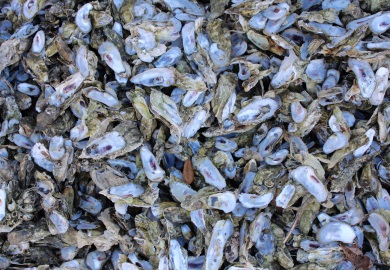
Shellfish harvesting to reopen in the fall
South Carolina’s harvest season for oysters and mussels will close on Monday, May 15, 2017 at one half hour after official sunset, according to South Carolina Department of Natural Resources (SCDNR) officials. Clam season will close on Wednesday, May 31, 2017 at one half hour after official sunset.
Because of higher bacterial levels that occur when water temperatures exceed 80 degrees Fahrenheit, shellfish harvesting during the summer months is limited to commercial harvesters who can meet rigorous handling requirements. Find out more about shellfish harvesting regulations here.
Coastal waters will remain closed to recreational shellfish harvesting until water temperatures begin to cool in the fall, making shellfish once again safe for harvesting and consumption. Shellfish harvesting is expected to reopen October 1, 2017.
SCDNR’s oyster shell recycling and replanting program continues its efforts to encourage the public to recycle their oyster shells. Oyster shell recycling drop-off locations are located throughout coastal counties, and collection sites can be found online.
During the summer months, SCDNR returns the recycled shell to shorelines, where it provides an ideal base for larval oysters to attach, thereby replenishing the harvested beds. When the quantity of shell needed to replant shellfish grounds exceeds those that are recycled, SCDNR must purchase shells from other vendors. Saltwater recreational fishing license sales provide funding for SCDNR’s shellfish restoration and enhancement efforts.
Late spring and early summer are also the busiest months for SCDNR’s community oyster restoration program SCORE. The public is invited to work with SCDNR staff and other volunteers to create oyster habitat in areas that are not harvestable. The resulting oyster reefs provide a host of ecological and economic benefits, including water filtration, nutrient cycling, and habitat for fish and invertebrates. Check the SCORE webpage for a calendar of events or email the community restoration staff at score@dnr.sc.gov to set up a group event.

Be the first to comment